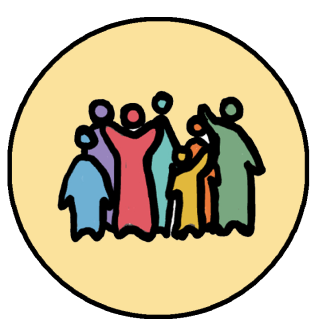
Relationality
*A note on the concept of a good life: this is not a definition but rather a description. What makes a good life in a specific place is dependent on the specific place, but through LBD’s research focusing on that which we share, certain themes kept re-emerging. These constituted the characterisation of a good life discussed below…*
‘Most goods are relational goods… you need interaction, you need another… all the highest things in life are things that we must share, things that we can only have together.’ Adrian Pabst, Professor of Politics, University of Kent, LBD Rannoch Meetings 2022.
A crucial reoccurring component of the good life is relationality. The human desire to bond and share with others, the aspect that makes us, social beings or as Aristotle called man, a ‘political animal[s]…who by definition lives in a community’.
This idea that humans are defined by their tendency to live in communities (from families to friendship groups, to villages and States) is an explicitly Aristotelian notion, that maintains that internationality is more than just a means to achieving the bare necessity of existence but rather it is an embodiment of the characteristics that allow us to be properly called ‘human’.
This is the ‘co’ that comes together to form ‘community’ and ‘common’. It should be noted that whilst the idea of a common good that follows is central to LBD’s methodology, it strives not for a ‘greater good’ but rather a ‘common good’. That is to say, unlike the former, the latter does not sacrifice the individual on the altar of the collective but rather the latter aims at the good that is commonly shared and enjoyed by all in the community.
‘Adam Smith is wrong in saying that there is only self-interest between butcher and baker…Friendship, communion they are a huge part of the experience that we are all undergoing and the joy that we feel in being here, and that is why the ancients put them at the heart of politics, at the heart of all human life’. John Millbank, Professor of Philosophy and Theology, University of Nottingham, LBD Rannoch Meetings 2022.
